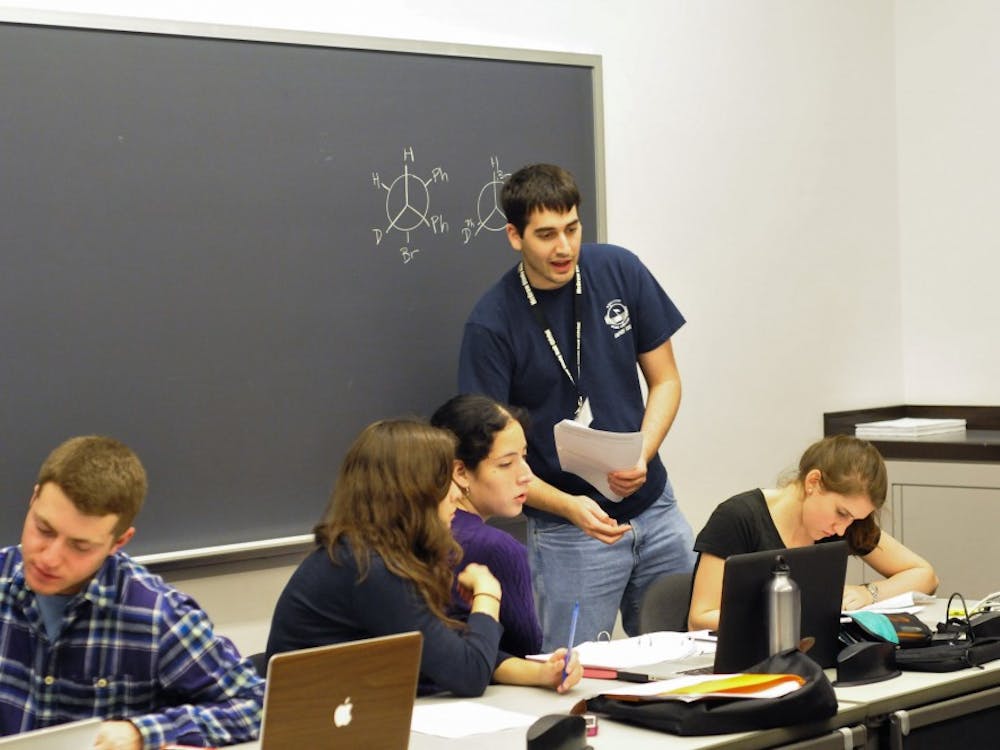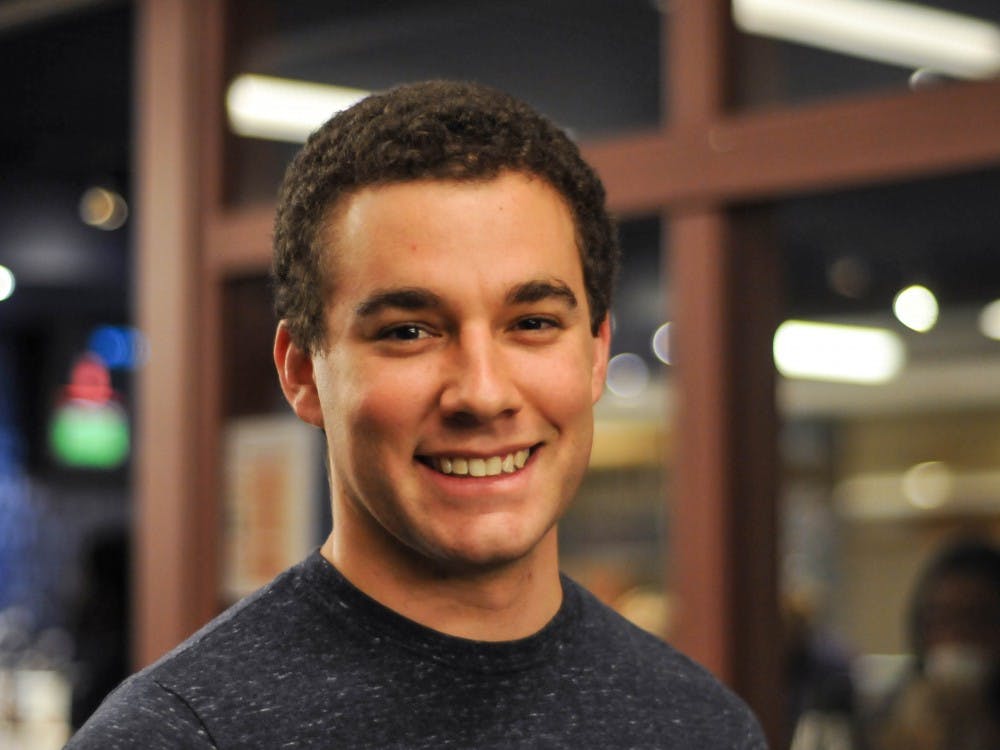McGraw Study Hall experiences overcrowding, student 'misapprehension' of program's purposes
Jacqueline GuffordThough McGraw Study Hall remains a popular academic-help resource, with 5,800 student visits recorded by the McGraw Center in the last academic year, its popularity has also been a source of dissatisfaction for some students because of the overcrowding and shortage of student tutors. According to data collected by the McGraw Center, in the 2012 fall semester, 62 tutors regularly worked one shift a week, and in spring 2013, only 59 did so.







